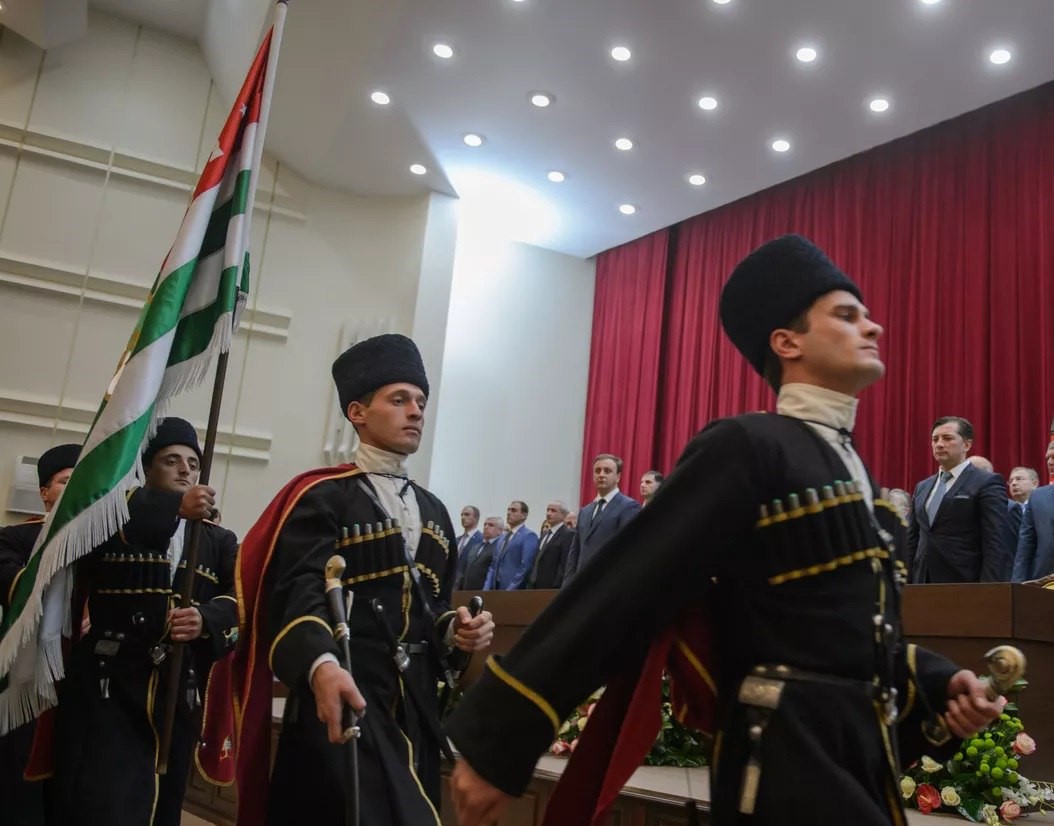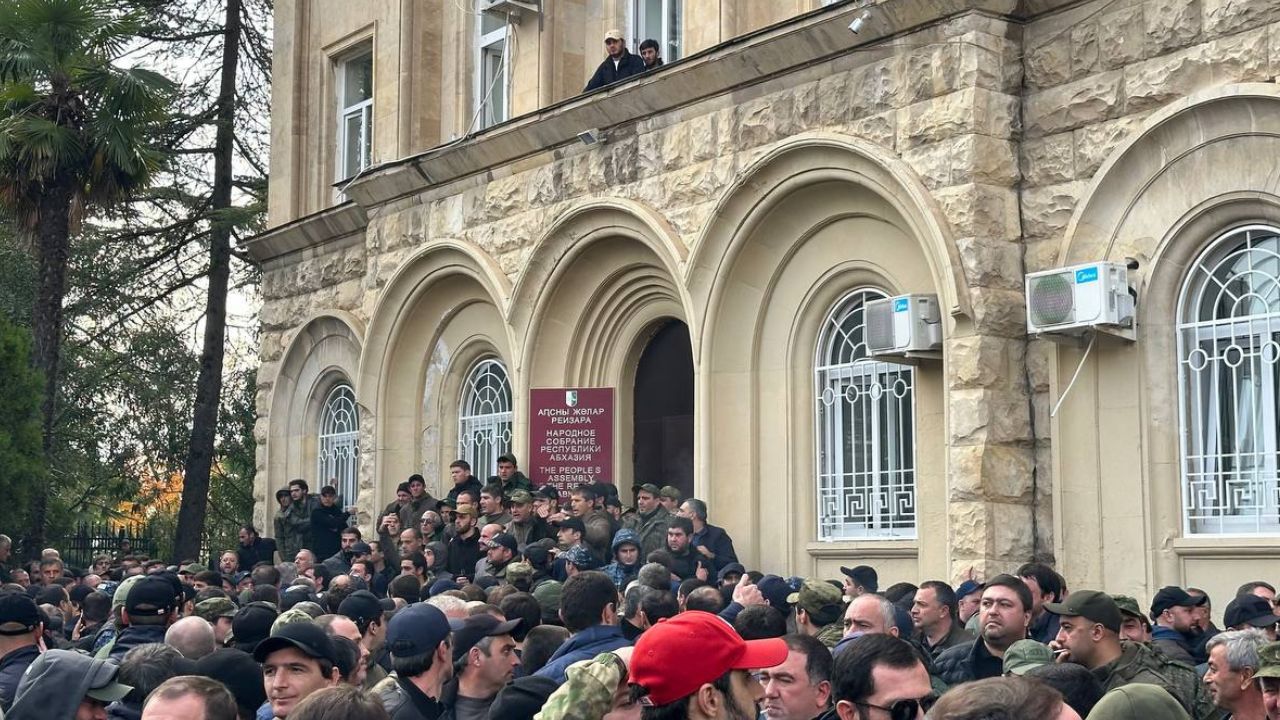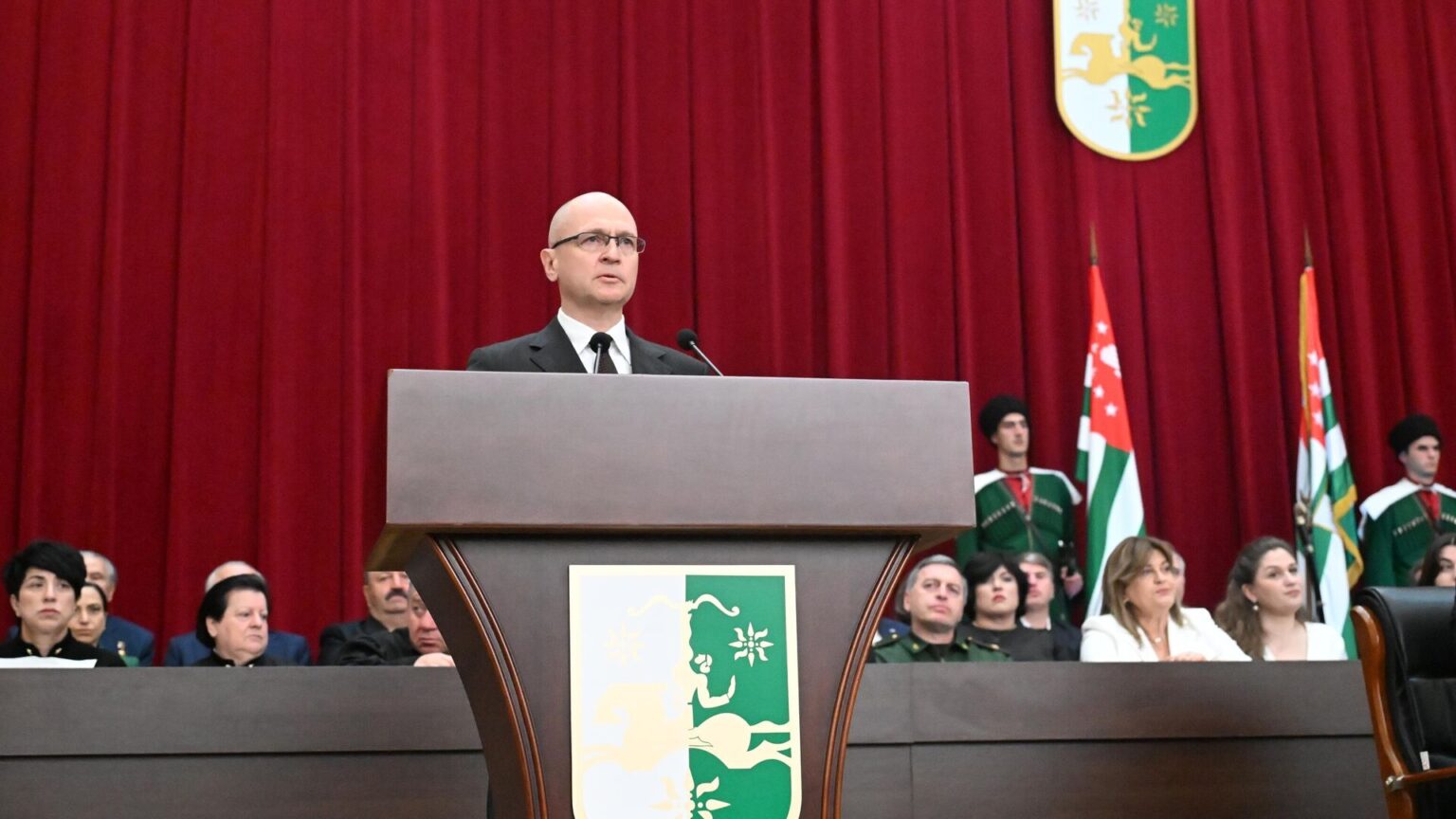Opinion: 'Kremlin now sets course for Abkhazia’s development'
Abkhazia’s new government
The day after his inauguration, the new president of Abkhazia, Badr Gunba, appointed former finance minister Vladimir Delba as head of government. Delba will now be responsible for forming the republic’s new cabinet.
Editor-in-chief of Chegemskaya Pravda Inal Khashig (designated a “foreign agent” by Russia) reflects on what this government might look like – and who is really in charge of Abkhazia now.
In his view, the Kremlin is trying to stabilise Abkhazia’s domestic political scene by removing figures who irritate the opposition from positions of power.
Below is a shortened version of Inal Khashig’s forecast.
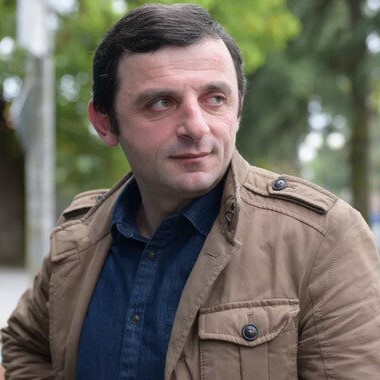
Inal Khashig: “Government instructed not to provoke”
Abkhazia’s new head of government, Vladimir Delba, is an experienced official typically described as a technocrat. Over his thirty-year career, he has gained a reputation as a completely apolitical but also uncorrupted bureaucrat, focused solely on the area entrusted to him in his political office.
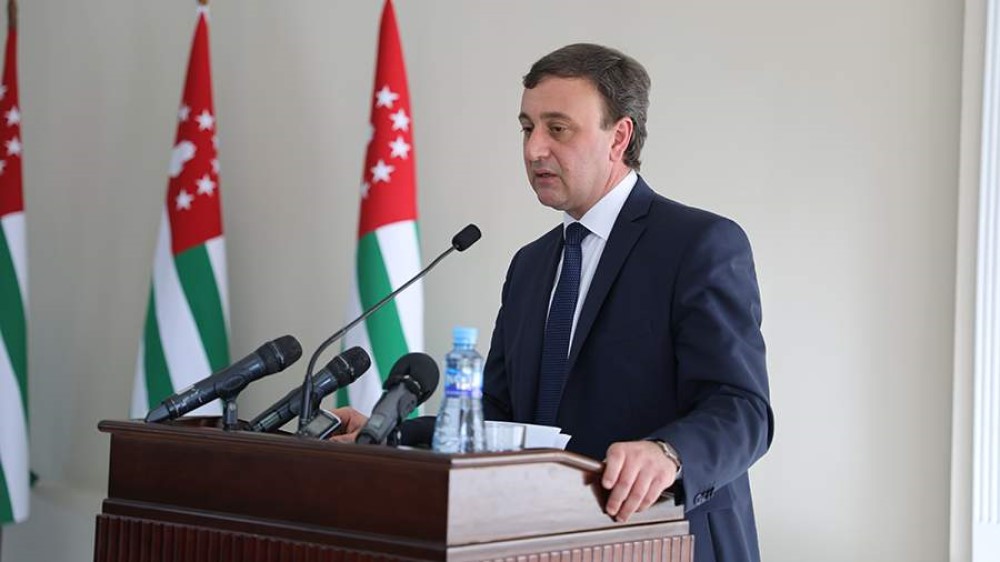
The new government has yet to be formed, but it seems it will be just as “neutral” as its head. There’s a sense that ministers will be chosen according to a specific standard – qualified professionals without a toxic background.
That’s precisely why the new cabinet will not include former president Aslan Bzhania, ex-prime minister Alexander Ankvab, former foreign minister Sergei Shamba, or several other close allies of Badr Gunba.
This is despite the fact that Alexander Ankvab had, in many ways, acted as a mentor and even a guardian to Gunba.
Ankvab undeniably played a major role in Badr Gunba’s political career – even leading his election campaign during the presidential race. It would be logical to assume he expected to remain in power if his protégé won. But he miscalculated.
The Kremlin, whose unprecedented support effectively made Gunba president, had its own vision for what the new Abkhaz government should look like.
The philosophy of Russian-Abkhaz relations – and the overall direction of Abkhazia’s development – is now shaped by the Kremlin’s new overseer for Abkhaz affairs, Sergei Kiriyenko, deputy head of Russia’s presidential administration.
It appears Kiriyenko (who, incidentally, is originally from Abkhazia himself) has taken on the role of crisis manager, with the primary goal of bringing long-term stability to the republic’s domestic political scene.
In other words, to break the vicious cycle in which disgruntled crowds storm government buildings and force yet another president to resign early – a scenario that has already played out three times in Abkhazia.
So, those associated with the recent political crisis will have no place in the new government. Neither Badr Gunba nor any other local politician could have achieved this on their own, no matter how much they wanted to. But Sergei Kiriyenko managed it with ease.
The opposition, at the very least, should be pleased with this turn of events – although it clearly dislikes the idea of external control. Still, this is the new reality it will now have to contend with.
The views, place names, opinions, and ideas expressed in this publication do not necessarily reflect the views and ideas of JAMnews or its individual employees. JAMnews reserves the right to remove comments on publications that are deemed offensive, threatening, incite violence, or ethically unacceptable for other reasons.











